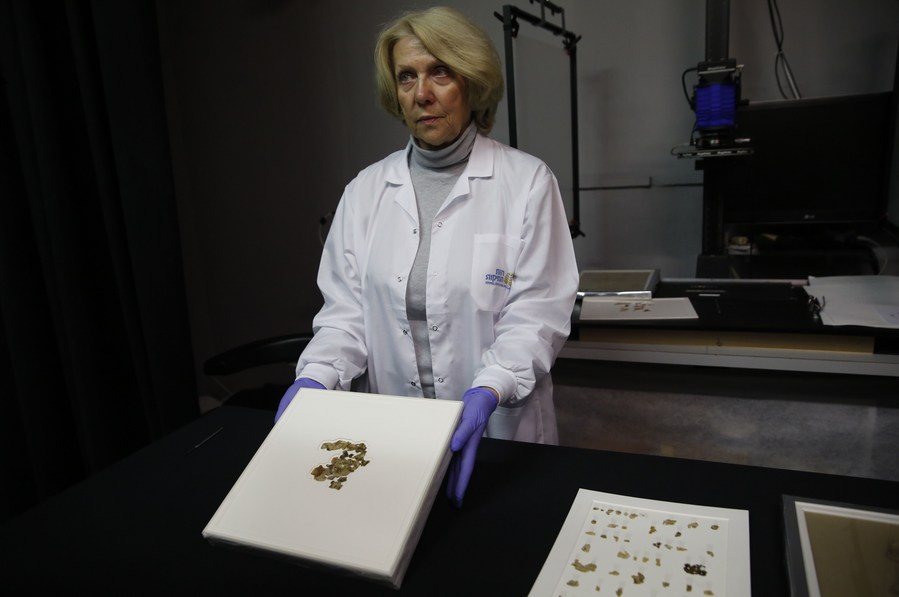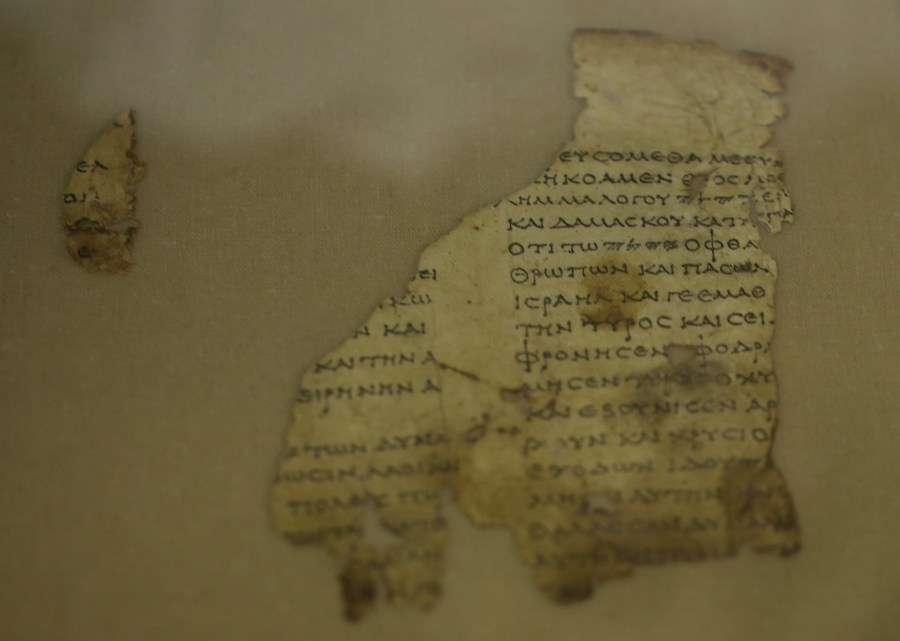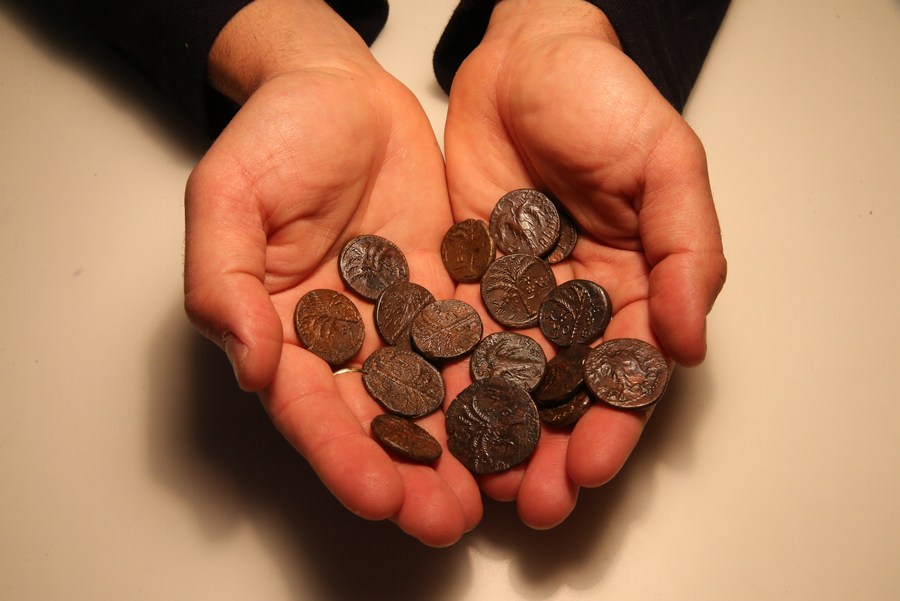 A well-preserved basket dates to the Pre-Pottery Neolithic period, approximately 10,500 years ago, is seen in the Israel Museum in Jerusalem on March 16, 2021. (Photo by Muammar Awad/Xinhua)
A well-preserved basket dates to the Pre-Pottery Neolithic period, approximately 10,500 years ago, is seen in the Israel Museum in Jerusalem on March 16, 2021. (Photo by Muammar Awad/Xinhua)
Israel discovers an old basket, which can help professionals learn about people who lived 10,500 years ago.
by Nick Kolyohin
JERUSALEM, March 17 (Xinhua) -- Israel Antiquities Authority (IAA) announced the finding of a well-preserved basket with a capacity of about 100 liters dating back to the Pre-Pottery Neolithic period, approximately 10,500 years ago.
"It is an amazing artifact, 10,500 years old, huge, intact, the only basket from that time found intact in Israel, and maybe in this size, the only one in the whole world," Chaim Cohen, IAA archaeologist, told Xinhua.
As far as we know, this is "the oldest basket in the world" that has been found completely intact, and therefore its importance is immense, said Cohen.
IAA researchers believe that they can learn a lot about people who lived on earth about 10,500 years ago, just from that one item looking almost brand new.
"The time this basket was made is long before ceramics was invented, and ceramics is the last language of archeologists," noted Cohen.
Examining the basket will help researchers better understand those ancient people, how they made tools, and from which materials they made them, said Cohen.
IAA professionals even believed that one of the people who made this basket was right-handed, and the other one was left-handed. Moreover, they used a unique technique.
The basket, with two lids at the top, was found in Muraba'at Caves in the Judean Desert above the Dead Sea. It was buried inside a cave under almost three feet of soil. It was exceptionally well preserved due to the high temperatures and extreme aridity of the region.
"People who made the basket buried it underground, leaving the top on the floor level of that period, and we assume that it was buried there to preserve things, maybe food or grains, to the next season," said Cohen.
The basket was presented on Tuesday to the local and international press at The Israel Museum in Jerusalem. Besides, ten other unearthed ancient finds were also presented.
 A staff member shows fragments of the new discovered Dead Sea Scroll in a lab in the Israel Museum in Jerusalem on March 16, 2021. (Photo by Gil Cohen Magen/Xinhua)
A staff member shows fragments of the new discovered Dead Sea Scroll in a lab in the Israel Museum in Jerusalem on March 16, 2021. (Photo by Gil Cohen Magen/Xinhua)
Among them were fragments of a 2,000-year-old biblical scroll that were found also in caves in the Judean Desert.
Dr. Oren Ableman, a curator researcher in the Dead Sea scrolls unit of IAA, told Xinhua that "this is the first time in over 60 years that we have discovered copies or fragments of a biblical book in a controlled excavation."
"And this enables us to have a better picture of the past and understanding of how the text of the Bible as we know today has developed over time," added Ableman.
 Fragments of the new discovered Dead Sea Scroll are seen in a lab in the Israel Museum in Jerusalem on March 16, 2021. (Photo by Muammar Awad/Xinhua)
Fragments of the new discovered Dead Sea Scroll are seen in a lab in the Israel Museum in Jerusalem on March 16, 2021. (Photo by Muammar Awad/Xinhua)
Additional exhibits included a 6,000-year-old skeleton of a mummified female child, arrows, spearheads, woven fabrics, rare Jewish coins from about 2,000 years ago, and some other notable relics.
 Rare Jewish coins from about 2,000 years ago are seen in the Israel Museum in Jerusalem on March 16, 2021. (Photo by Muammar Awad/Xinhua)
Rare Jewish coins from about 2,000 years ago are seen in the Israel Museum in Jerusalem on March 16, 2021. (Photo by Muammar Awad/Xinhua)
All these artifacts were unearthed by Israeli archeologists during the past three and a half years in a mission in hundreds of caves at high hills. ■




